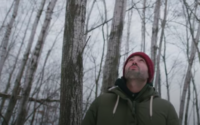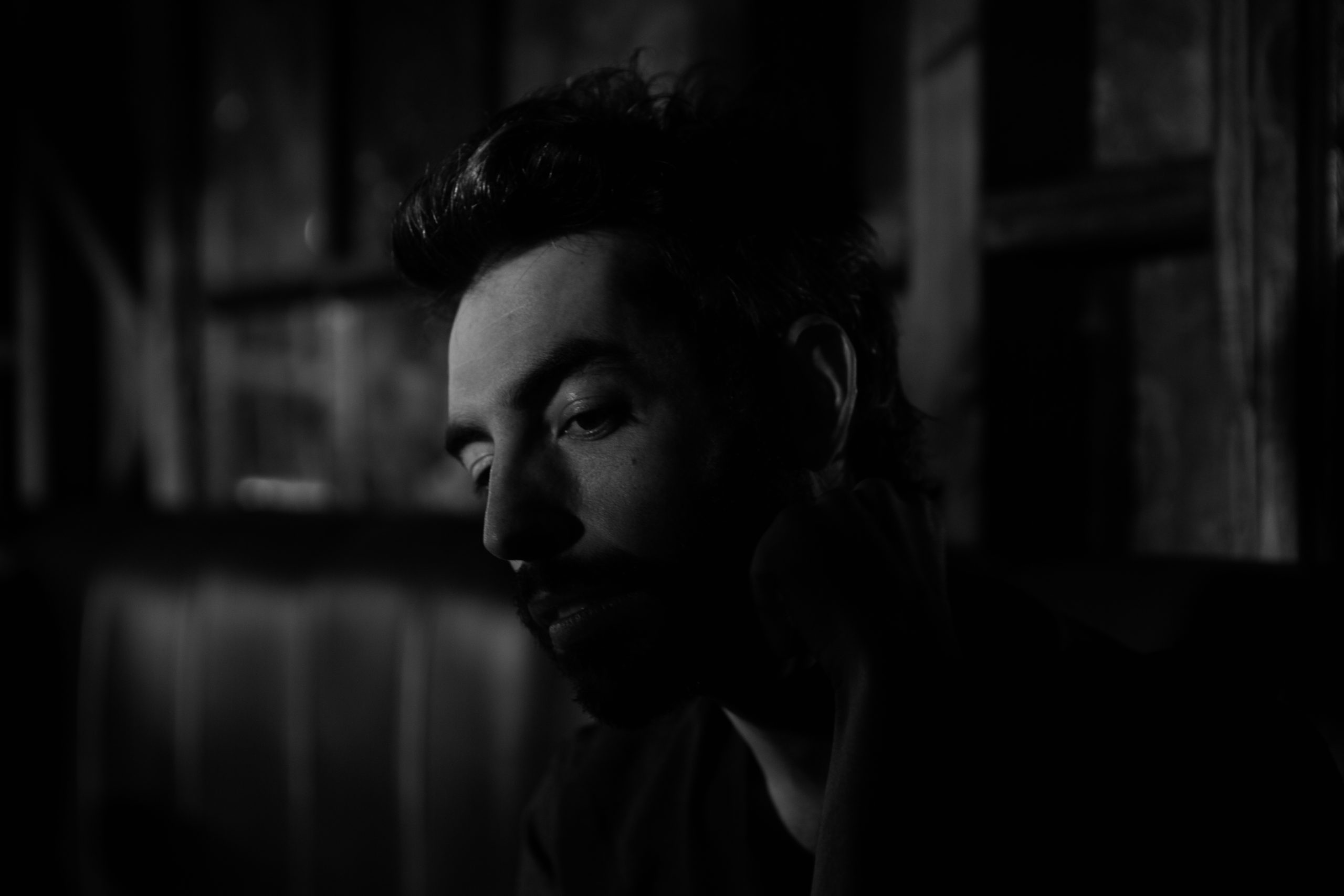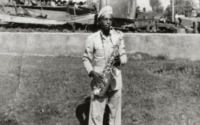A Tale of Two Covers: “Lilac Wine”
The list of artists who have covered “Lilac Wine” is long—and ongoing—but there are two who stand apart: Nina Simone and Jeff Buckley. Their versions, recorded nearly 30 years apart, offer evocative interpretations of a song that is as much about atmosphere as it is epiphany.
Composer James Shelton originally wrote “Lilac Wine” in 1950; it would go on to debut as part of the musical revue Dance Me a Song. Knowing its dramatic origins, it’s hard not to read Shelton’s lyricism as a specifically vivid backdrop, with the song functioning as a monologue more than other pop ballads of the period. The opening lyrics, “I lost myself on a cool damp night/ I gave myself in that misty light,” pull back the curtains on a hazy yet detailed scene.
“Lilac Wine” is a potent song about intoxication—its fog and folly—but especially how that clouded state can sometimes get you closer to the truth, or the bravado to face it: “It makes me see what I want to see/ And be what I want to be.” The narrator awaits their love, drinking up the courage to face that desire head on, but when that possibility grows nearer, grows surer, so too does the troubling supposition that they don’t want what they originally thought: “Lilac wine, I feel unready for my love/ Feel unready for my love.”
Simone’s version appears on her 1966 album Wild Is the Wind. She plays the piano scenically, building it as if it were a thunderous backdrop, while the upright bass accompanying her plucks a punctuating note against that flurry.
In her delivery, Simone wields a touch of sorcery. The song’s trawling pace suits her distinctively dusky voice well, curving toward the self-realization that sits at the song’s center. Pitchfork’s Ryan Dombal attributed her emotional vocals to the tumultuous relationship she had with her husband turned manager, along with the increasingly violent events of the ’60s, which produced “Mississippi Goddam” and Wild Is the Wind‘s standout “Four Women.”
In her voice, I hear a longing for escape. A lover offers one possibility, but absent that option, she settles on lilac wine, which paints for her the fantasy of a different existence—”It makes me see what I want to see/ And be what I want to be.” There’s a central unspoken pang about Simone’s version that has always felt as intoxicating as the drink she sings about.
Buckley’s version appears on his 1993 album Grace. Rather than Simone’s heavy opening piano chord, the strum of his electric guitar stitches a more delicate approach. His voice makes an emotional leap between the second verse and the song’s central confession—the reason behind the narrator’s drinking in the first place—”I think more than I wanna think/ I do things I never should do.” In his pining call, I hear exasperation bordering on contempt.
Buckley’s sustain draws out the instability lingering around the edges of “Lilac Wine.” “Listen to me, why is everything so hazy?/ Isn’t that she, or am I just going crazy, dear?” he sings, warbling slightly on “crazy.” Given the song’s theatrical underpinnings, Buckley’s cover feels closer to the monologue I mentioned earlier. The way he delivers that confession (“or am I going crazy, dear?”) serves as the edge, before he pulls himself back for the concluding truth about being unready.
It’s not a matter of playing favorites here. “Lilac Wine” is a fluid song that finds its form in Simone’s and Buckley’s respective approaches. The juxtaposition between their registers—Simone’s lower and Buckley’s higher—and their primary instruments—piano and electric guitar—present two wildly different, yet equally heady, renditions. I find myself returning again and again, asking them to fill my glass once more with their haunting and hanging truth.




